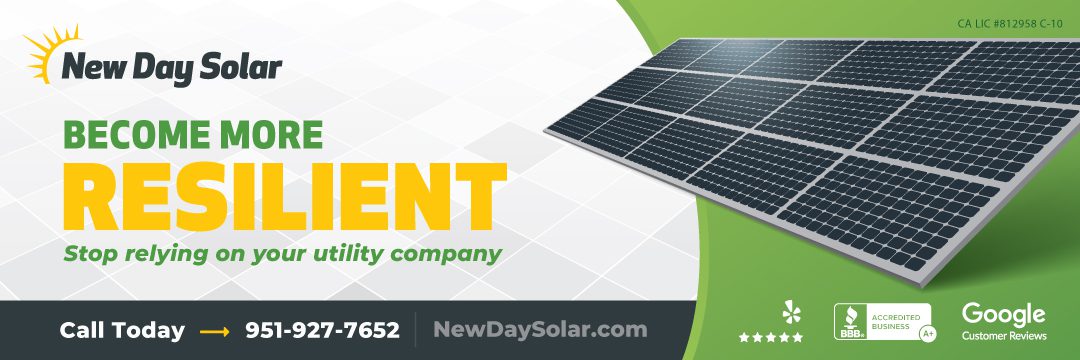Calculating ROI When Installing a New Solar System

When it comes to installing a solar system, one of the first questions homeowners often ask is, “How much money will I save?”
The answer lies in understanding your return on investment (ROI). Calculating the ROI for your solar energy system can help you make an informed decision about this valuable, long-term investment. Not only does solar power save money, but it also offers environmental benefits and protection against rising utility rates. Let’s break down the key elements of calculating ROI when installing a solar system.
What Is ROI and Why Is It Important for Solar?
Understanding ROI in Solar Energy
Return on Investment (ROI) is a financial measure used to evaluate the profitability of an investment. For solar energy systems, ROI represents the financial gains (savings on electricity bills) compared to the initial investment (installation costs).
Why ROI Matters
Knowing your solar ROI helps you:
- Evaluate the cost-effectiveness of installing a system.
- Plan your finances better with a clear timeline for payback.
- Understand the long-term savings solar can provide.
Typical ROI Timeframes
In Southern California, the average solar payback period is 5 to 8 years, depending on factors like system size, energy consumption, and available incentives. After this period, the energy savings are pure profit.
Factors That Influence Solar ROI
Energy Savings
- Reduction in Utility Bills: Solar power drastically cuts electricity costs, especially in areas with high utility rates like Southern California.
- Seasonal Variations: Savings may vary throughout the year based on sunlight availability, but most systems generate enough energy to offset your annual electricity usage.
Incentives and Rebates
- Federal Solar Tax Credit (ITC): Homeowners can claim 30% of their solar installation costs as a tax credit.
- Local Incentives: Programs like California’s Solar Initiative and utility rebates can further reduce upfront costs.
Net Energy Metering (NEM) 3.0
- NEM 3.0 allows homeowners to earn credits for excess energy sent back to the grid, though at lower rates than previous versions.
- Pairing solar panels with a battery storage system can improve ROI by allowing you to store and use energy when grid rates are highest.
System Cost
- Installation Costs: High-quality panels and professional installation may cost more upfront but lead to better savings over time.
- Financing Options: Loans, leases, and Power Purchase Agreements (PPAs) impact ROI differently. Buying your system outright typically offers the highest ROI.
Energy Needs and Usage Patterns
- Customizing your system size to match your household’s energy consumption ensures maximum savings.
- Time-of-Use (TOU) rates in California reward homeowners for using stored solar energy during peak rate periods.
Calculating Your Solar ROI
Step 1: Determine Upfront Costs
Include the total cost of panels, inverters, labor, permits, and any additional equipment like batteries.
Step 2: Estimate Annual Energy Savings
Use your current utility bills to calculate how much you’ll save annually after switching to solar. Factor in rising electricity rates over time.
Step 3: Account for Incentives and Rebates
Subtract incentives like the federal tax credit and local rebates from your total upfront cost.
Step 4: Factor in System Lifespan
Solar panels typically last 25+ years, meaning your savings will continue long after your system has paid for itself.
Step 5: Calculate Payback Period
Divide your net upfront cost (after incentives) by your estimated annual savings to determine how long it will take to recoup your investment.
Real-World Example of Solar ROI in Southern California
Sample Calculation:
- System Cost: $20,000 (before incentives).
- Incentives and Rebates: Federal tax credit reduces the cost by $6,000, leaving $14,000.
- Annual Savings: $2,000 on electricity bills.
- Payback Period: $14,000 ÷ $2,000 = 7 years.
After the 7-year payback period, the homeowner enjoys $2,000 in savings annually for the remaining 18 years of the system’s lifespan, totaling $36,000 in profit.
Additional Benefits That Add to ROI
Increased Property Value
Homes with solar systems often sell faster and at a premium. Studies show solar can increase a home’s value by up to 4%.
Energy Independence
Solar power protects you from rising electricity rates and unexpected utility price hikes.
Environmental Impact
Beyond financial savings, using solar energy reduces your carbon footprint and contributes to a greener planet.
How New Day Solar Can Maximize Your Solar Installation Investment
Custom Systems Tailored to Your Needs
We design solar systems that align with your household’s energy usage, ensuring optimal efficiency and savings.
Guidance on Incentives and Rebates
Our team stays up-to-date on all available incentives and helps you navigate the application process.
Premium-Quality Panels and Warranties
We use only the best equipment with industry-leading warranties to maximize your system’s lifespan and ROI.

We Can Help You Get Your ROI for Your New Solar System!
Once you have done your ROI calculations and are ready to go solar… Give us a call and get started on your cost-benefit journey today.
Filed Under:
have questions?
Schedule a consultation with Our Solar Experts
Find out more with an honest, no pressure consultation
with our team of solar experts.